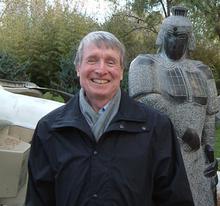 John Holland
John Holland
The computer scientist John Holland died on August 9, 2015, at the age of 86, according to a memorial notice from the Santa Fe Institute (August 10, 2015). Holland, in the words of the memorial notice, was "a pioneer in the study of complex adaptive systems and the leading figure in what became known as genetic algorithms." His books included Adaptation in Natural and Artificial Systems (1975), Hidden Order: How Adaptation Builds Complexity (1995), Emergence: From Chaos to Order (1998), Signals and Boundaries: Building Blocks for Complex Adaptive Systems (2012), and Complexity: A Very Short Introduction (2014).
Holland's work was inspired by the work of the evolutionary biologist R. A. Fisher. According to Kevin Kelly's Out of Control (2009), he regarded Fisher's The Genetical Theory of Natural Selection (1930) as opening "a new world of human knowledge by subjugating nature's most potent force — evolution — with humankind's most potent tool — mathematics," and accordingly "began the job of trying to code evolution into a machine." The interaction between evolution and computation in Holland's work was bidirectional. In the Santa Fe Institute's memorial notice, David Krakauer, the president of the institute, commented that Holland was "unique in that he took ideas from evolutionary biology in order to transform search and optimization in computer science, and then he took what he discovered in computer science and allowed us to rethink evolutionary dynamics." In a 2007 Q&A session with NOVA, Holland noted that complex behavior emerges naturally from genetic algorithms that model evolution, adding, "Such concrete illustrations of emergence give little comfort to those advocating intelligent design."
Holland was born in Fort Wayne, Indiana, on February 2, 1929. He attended the Massachusetts Institute of Technology, where he received his B.S. in physics in 1950, and the University of Michigan, where he received his M.A. in mathematics in 1954 and his Ph.D. in communication sciences in 1959. At the University of Michigan, he was a professor of computer science and engineering from 1967 onward and a professor of psychology from 1988 onward. He was also a professor and member of the executive committee of the board of trustees at the Santa Fe Institute. His honors included a MacArthur "genius" fellowship in 1992.
